English actress and costume designer Joan Collins turns 88 years old today. Here are a few pictures of her, at various points in her 70-year long (so far!) career on television and the Big Screen. (She made her debut in the 1951 film "Lady Godiva Rides Again".)
Sunday, May 23, 2021
Friday, May 21, 2021
The Avengers Dossier, Page Ten
Here's another look at a supporting player from the classic television series, "The Avengers".
DUDLEY FOSTER
In "The Hour That Never Was", Dudley Foster plays an officer in Steed's old R.A.F. unit who is tied to the mysterious happenings at an airfield that is being decommissioned.
DUDLEY FOSTER
In "The Hour That Never Was", Dudley Foster plays an officer in Steed's old R.A.F. unit who is tied to the mysterious happenings at an airfield that is being decommissioned.
Born in 1924, Foster served in the Royal Air Force during World War II, and turned to professional acting during the post-war years, first on stage and then becoming a fixture on British television from the mid-1950s through the mid-1970s. Historical dramas, mysteries, sci-fi, horror, fantasy, or comedy... Foster appeared in shows of just about any genre. He was mostly cast as policemen, military officers, and other authority figures...not all of whom could be trusted.
Foster's main roles were starring turns on the British television series "Bat Out of Hell" (1966), "A Hundred Years of Humphrey Hastings" (1967), "If It Moves, File It" (1970), and "It's Murder, But Is It Art?" (1972). He also starred as Detective Inspector Dunn during the first season of the long-running police drama "Z-Car" (in 1962). He later returned to play a completely different character in two episodes of series final season in 1971.
During the late 1950s and early 1960s, Foster also regularly appeared in roles big and small on anthology series, such as the "BBC Sunday-Night Play", "ITV Television Playhouse", and "The Edgar Wallace Mystery Theatre". In total, he appeared in over 100 different television series and films, often returning as different characters in different seasons. On "The Avengers", he returned in more two episodes, as two other characters--"Something Nasty in the Nursery' (1967) and "Wish You Were Here" (1968), the latter being a spoof of another British spy series, "The Prisoner".
Foster, despairing at the death of his father, committed suicide in 1973.
Thursday, May 20, 2021
A great homage to silent comedies
Late to Lunch (1987, with general release in 2009)
Starring: John Carpenter, Donna Fox, and Michael Schwendamen
Director: John Carpenter
Rating: Eight of Ten Stars
Starring: John Carpenter, Donna Fox, and Michael Schwendamen
Director: John Carpenter
Rating: Eight of Ten Stars
Our hero (Carpenter) must overcome overzealous police officers, judgmental relatives, a romantic rival (Schendamen) and his own tendency to oversleep if he is to finally win the hand of the woman he loves (Fox).
"Late to Lunch" is film history lecturer and preservationist John Carpenter's love letter to the silent comedies of the 1920s--with those starring and/or written by Charley Chase being an especially large degree of affection.
Although Charley Chase doesn't have the name recognition of Charlie Chaplin or Buster Keaton, he should. Chase's comedies--whether they were silent films or talkies--were almost always tightly plotted and precisely executed affairs. A Chase comedy is a like a superbly engineered and well-oiled machine with gags feeding into other gags and if a story element appears somewhere in the film, it will be incorporated into either a joke or dramatic twist before the film's over. Chase's films are also very much front-runners to the modern-day sit-com, with a misunderstanding or minor cultural misstep that spirals into a big deal and expanding chaos. A Chase character is usually trying to solve problems and just get along with his everyday life rather than cause them, and his characters are almost always charming, Jazz Age Everymen. They may sometimes be upper class, but more often than not, they are just white collar workers... but they are always charming and goodhearted.
It's in this mold that John Carpenter created "Late to Lunch". He portrays an Everyman character who wants to have a happy life with his girlfriend, but circumstances are getting in the way. Hilariously so... at least for the viewers! Things keep going from bad to worse for our hero, as situations keep compounding each other, and it's all very enjoyable and logically within the film's world.
One great thing about this film is that Carpenter and his cast and crew avoid some of the most common pitfalls that often plague films that try to emulate works from the silent era.
First, Carpenter puts as much emphasis on story as one would in a modern film, and just as the creators did Back in the Day. Nothing happens just because it's goofy and all characters behave in a fashion that makes sense within the context of what's going on.
Second, while period costumes and vehicles are used, it's all consistent. Nothing is over-the-top ridiculous for its own sake, be it costumes, make-up, or performances. (Yes, there are times when actors are hamming it up, but when they do, it's either in dream sequences or in keeping with stylistic flourishes from the emulated period. In fact, everyone performing in this film both encourage viewers to buy into the illusion that they're actually performing in a 100-year-old movie, while at the same time projected the fun they're having while making it through the screen.)
Finally, there's the music. Carpenter chose to score his film with vintage recordings that were actually used in theaters that didn't feature live musicians. While I have said in numerous reviews that I prefer the silent films with custom scores instead of stock music, but what Carpenter did here--using vintage stock music to score a modern silent film--made his homage feel quite authentic.
Speaking of authentic, Carpenter took steps to "age" "Late to Lunch", giving this 1987 film a feel similar to those surviving, beat-up movies from the 1920s. I'd even say that Carpenter did a better job at this than I recall seeing anywhere else--and those digital aging templates I've come across look downright pathetic to what was done with this film.
There are many other great touches in "Late to Lunch" that I am loathe to talk about, because I don't want to spoil the film for when you watch it, but I will say that some of my favorite parts of the film I were playfulness with the intertitles; the extended chase scene and the mugging talking place during it; the romantic scene by the reflecting pool; and the dream sequences and their gentle spoofing of silent era melodramas. All of these sequences are extremely well-done, with an execution that felt exactly like an old silent movie yet with a polish that showed it was made by someone who had the benefit of having studied them and who also had a talent for filmmaking.
There are one or two things I could complain about in "Late to Lunch", but they feel like I'd just be nitpicking. I'm just going to wrap up by stating that if you like silent comedies, you're going to appreciate John Carpenter's tribute to them.
"Late to Lunch" is available on DVD in the "Silent Comedy Classics: 12 Classic Shorts" set from Alpha Video. It's a collection of some of the great movies Carpenter pays tribute to, half of them being Charley Chase vehicles. To say this collection is a bargain is an understatement... and I think it's a great purchase whether you've been watching old movies for a long time or if you've just discovered the joys they offer.
Wednesday, May 19, 2021
The Unifying Theme with Julie Newmar
Not since Zoe Seldana first helped bring this blog's unifying theme into focus has anyone done it as effectively as Julie Newmar does today.
Tuesday, May 18, 2021
The Little King goes to prison
Jolly Good Felons (1934)
Starring; Anonymous Voice Actors (although there is only one real spoken line)
Director: Vernon Stallings
Rating: Six of Ten Stars
The Little King tours his nation's prison... and he inadvertently causes a riot and mass-escape.
Starring; Anonymous Voice Actors (although there is only one real spoken line)
Director: Vernon Stallings
Rating: Six of Ten Stars
The Little King tours his nation's prison... and he inadvertently causes a riot and mass-escape.
"The Little King" was a popular comic strip by Otto Soglow that debuted in "New Yorker" magazine and was acquired for syndication by Kings Features in 1934. It ran in newspapers nationally and internationally until Soglow's death in 1974.
As Soglow was securing the syndication deal with Kings Features, the Van Beuren Company licensed the Little King and associated characters for use in animated short features. After a couple test runs under the "Aesop's Fables" banner, the King's solo feature was launched, under the watchful guidance of lead animator Jim Tyer who was determined to make "The Little King" films among the consistently highest quality productions to be released under the Van Beuren banner. Tyler was concerned both with staying true to the original comic strip, as well as having the animation being as good as possible.
"Jolly Good Felons" was made toward the end of the Van Beuren series, but Tyler's desire to produce cartoons of the highest quality is still very much the guiding principle here.
The animation is some of the best from the Van Beuren shop, and most of the character designs are in keeping with the original Little King strip. Similarly, a good chunk of the film also manages to capture the tone of the comics, with the Little King engaging in frivolous behavior and generally behaving more like a kid than an adult. Some sequences drag a little, but not fatally so, and they are cute enough to keep the viewer's interest. And once the Little King starts his tour of the prison, the pace picks up and keeps accelerating until the (literally) explosive finale.
One thing that did need a little more work was the story. Yes--I know this is a Van Beuren cartoon so I shouldn't expect much in that department, but a couple other "Little King" cartoons I've watched had excellent stories that had multiple plot points, as well as beginnings and middles and ends. Although this one is mostly a series of loosely connected gags, there's a sense that's going somewhere... until it seems to stop short of any real conclusion. "Jolly Good Felons" ends some 2-3 minutes before it should have, leaving every plot point it set up unresolved. It's unsatisfying, and it's below the bar set by other entries in this series. (I am also bothered by the way a Good Samaritan that helps the Little King after he is stranded on the side of the road is dismissed from the story when his role is over. I understand that it's a visually amusing and efficient way to get him off-stage--he is sent deep into the facility with a group of prisoners---but the bigger implications of those events trouble me. Yeah, I may be overthinking things here, but still...)
But why don't you take a few moments to watch "Jolly Good Felons" yourself? Despite stumbling at the end, it's pretty good, and I think it's worth your time. As is my habit when reviewing Van Beuren Corporation cartoons, I've embedded it in the post to make watching it as convenient as possible! (And if you feel so inclined, you can even tell me if I'm wrong to be irritated by the apparent fate of a guy who helped the Little King.)
Monday, May 17, 2021
Musical Monday with the Roop
Meet the Roop. They are a Lithuanian pop band that was supposed to represent their country in the finals of the 2020 Eurovision contest... until Covid-19 destroyed their dreams of international fame.
Here's the weird video for the catchy song they would have performed at 65th annual Eurovision contest last year.
Will the Roop be at the do-over Eurovision 65th annual contest (since many nations let the winning bands that would have performed last year carry forward) this year? Will they win? At the end of this week, on May 21 - 23, Europe (and the world!) will find out!
Sunday, May 16, 2021
'Move On' is worth pausing for
Move On (1917)
Starring: Harold Lloyd, Bebe Daniels, William Blaisdell, and Sammy Brooks
Directors: Billy Gilbert and Gilbert Pratt
Rating: Six of Ten Stars
A patrol officer (Lloyd) and his sergeant (Blaisdell) both have romantic design on a wealthy family's nursemaid (Daniels).
I'm not entirely sure what to make of the version of "Move On" that I found on YouTube. Its content and cast bears only a passing resemblance to the description and cast list both at IMDB and at Wikipedia. Either there are two films from 1917 with the same title and the stars, or there is a chunk of the film that doesn't survive to the present day. It's impossible for me to figure out which (with the level of time I am willing to commit to research that is).
I do suspect that the version of "Move On" I watched (and have embedded below, so you can watch it too) is fairly intact, because its run-time matches the five minutes listed on IMDB. However, there way Harold Lloyd's character enters the first scene he shares with Bebe Daniels makes it seem like something is missing, because it appears that he may have been chasing someone but then decided to make time with the cute girl instead. (Perhaps that's where "Snub" Pollard appears, along with others of the listed cast members, because they are nowhere in this film, except maybe as faceless extras at the very beginning.)
Whether this is a complete film or not, what we have is a fast-moving bit of entertainment. One bit feels like it's missing a pay-off, but otherwise this feels like a complete story. What's better, it has a somewhat surprising ending when compared to other Lloyd/Daniels-led comedies from this period. All-in-all, if you've enjoyed other of their works, I think you'll enjoy this one, too.
Saturday, May 15, 2021
Public Service Saturday with Evan Dorkin
As a public service, Shades of Gray re-presents Evan Dorkin's Little People-starring comic book adaptation of J.D. Salinger's "The Catcher in the Rye". This American novel, originally published in 1951, has been described as one of the greatest coming-of-age tales ever written. This proves that there's no accounting for taste.
Writer/artist Evan Dorkin read it so you don't have do. Be thankful. (Click on the panels for larger, more easily read versions.)
(This material originally appeared in Dork #1, published by Slave Labor Graphics in 1993. To support Evan Dorkin's current projects, join his Patreon Page.)
Writer/artist Evan Dorkin read it so you don't have do. Be thankful. (Click on the panels for larger, more easily read versions.)
(This material originally appeared in Dork #1, published by Slave Labor Graphics in 1993. To support Evan Dorkin's current projects, join his Patreon Page.)
Thursday, May 13, 2021
The Avengers: Dial a Deadly Number
Dial a Deadly Number (1965)
Starring: Patrick Macnee, Diana Rigg, Peter Bowles, Clifford Evans, Jan Holden, John Carson, and Anthony Newland
Director: Don Leaver
Rating: Ten of Ten Stars
Sudden heart attacks have claimed several heads of industry who share the same banker (Evans), who has, seemed to have been taking advantage of the stock market turmoil their deaths have brought on. Top government investigators John Steed (Macnee) and Emma Peel (Rigg) are dispatched to unravel the mystery and bring any culprits to justice.
Starring: Patrick Macnee, Diana Rigg, Peter Bowles, Clifford Evans, Jan Holden, John Carson, and Anthony Newland
Director: Don Leaver
Rating: Ten of Ten Stars
Sudden heart attacks have claimed several heads of industry who share the same banker (Evans), who has, seemed to have been taking advantage of the stock market turmoil their deaths have brought on. Top government investigators John Steed (Macnee) and Emma Peel (Rigg) are dispatched to unravel the mystery and bring any culprits to justice.
"Dial a Deadly Number" is one of the best episodes of the series--the creators of the series were on a roll! It's got a sharp script that features a multi-layered mystery that gets more involved as the show unfolds instead of unraveling and plenty of witty, sharp exchanges between Steed and Peel, as well as the supporting characters. It's especially inpressive that even after the heroes have proven that the executives are being murdered and how it's being done, they don't know the "who" and have to resort to a risky gambit to expose the true villains.
And speaking of risk, this episode does a great job at keeping the tension high, even in scenes where there is minimal action. There's a sequence where Steed and Peel attend a wine tasting where they and their suspect pool are trying to take each others measures (while engaging in a little bit of snobbish one-upsmanship) and the clash is more exciting than the shoot-out/battle that serves as the episode's climax. (That said--even the fight scenes in this episode are better executed and more dramatic than are the norm for this series. More often than not, they haven't weathered the passage of time well--and I suspect even audiences in the 1960s thought some of them were weak--but whether it's the motorcyclists that ambush Steed in a parking lot, or an unarmed Peel trying to stealthily take out a gun-toting bad guy in a wine cellar, this episode give us some of the best action that "The Avengers" series has to offer.
Another great part of this episode is that it makes oblique use of Emma Peel's "deep background" as an independently wealthy daughter of a business tycoon/industrialist while adding also adding some additional details to Steed's background (however small). A good portion of the episode's plot revolves around high finance and investments, and Steed and Peel interact with bankers and brokers and other personalities in that world. Initially, Peel stays at arm's length and out of sight of the financiers, but when she ends up having to interact with them, she immediately fits right in. She even has a ready-made and airtight response to a suspect who is testing her with probing small talk. (It, and a couple upcoming episodes, provided the jumping-off point for "The Growing-Up of Emma Peel" comics series, which you can read by clicking here.)
One final stroke of brilliance in this episode is that the humorous tag at the end ties firmly into the story and action of the episode instead of just being a little bit of nonsense. I wish more of these had been done like this.
Wednesday, May 12, 2021
Princesses of Mars, Part 36
On this Picture Perfect Wednesday, the Princesses of Mars are kicking ass and not bothering to take names.
Subscribe to:
Posts (Atom)

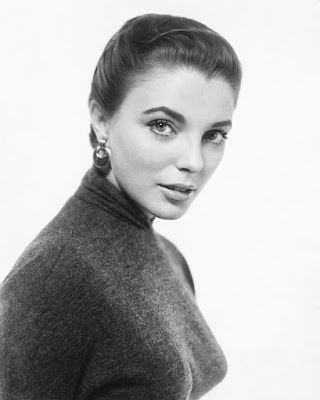
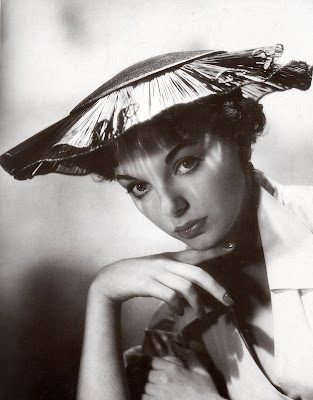
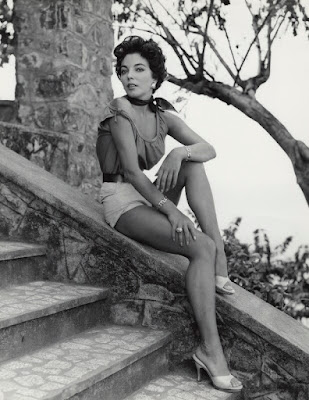
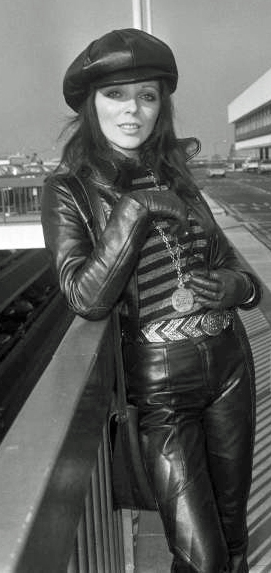
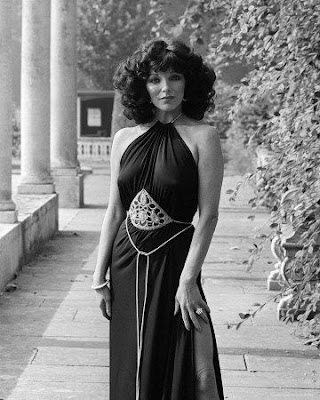



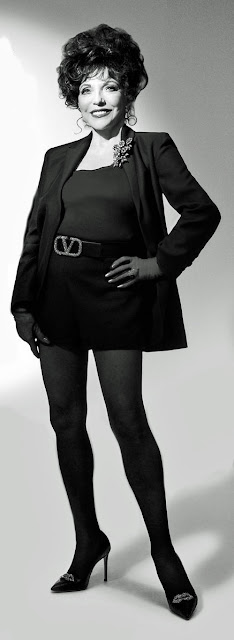



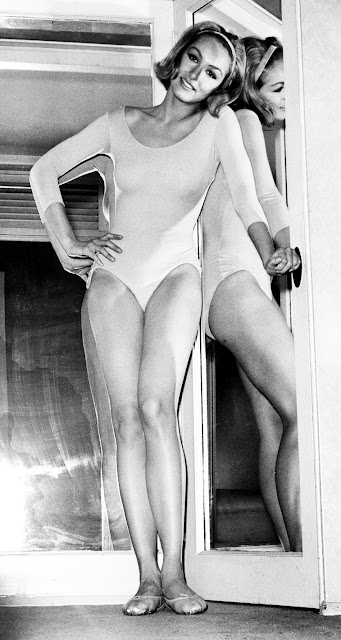
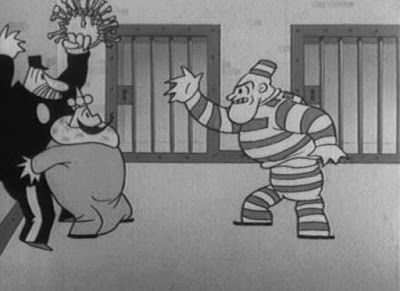






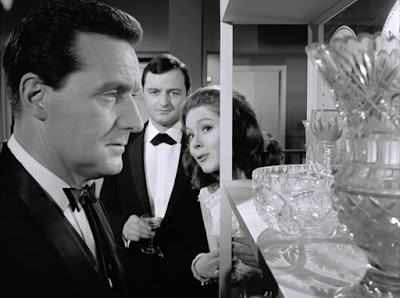
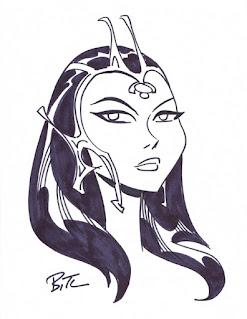
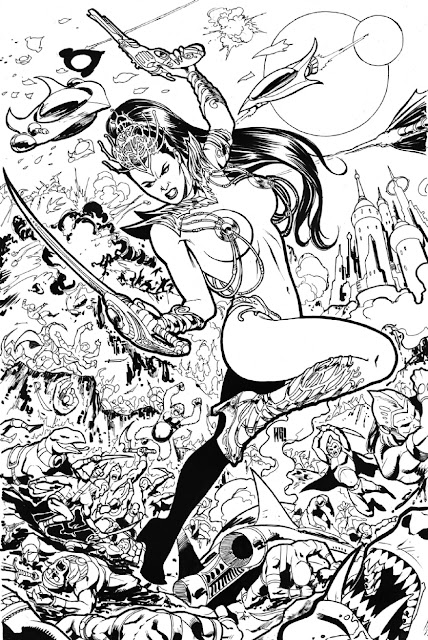

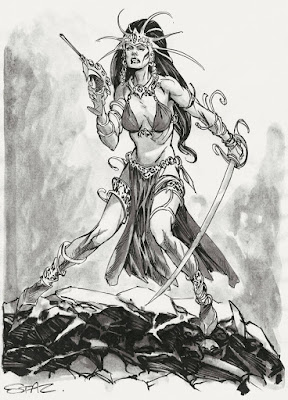



















.jpg)
